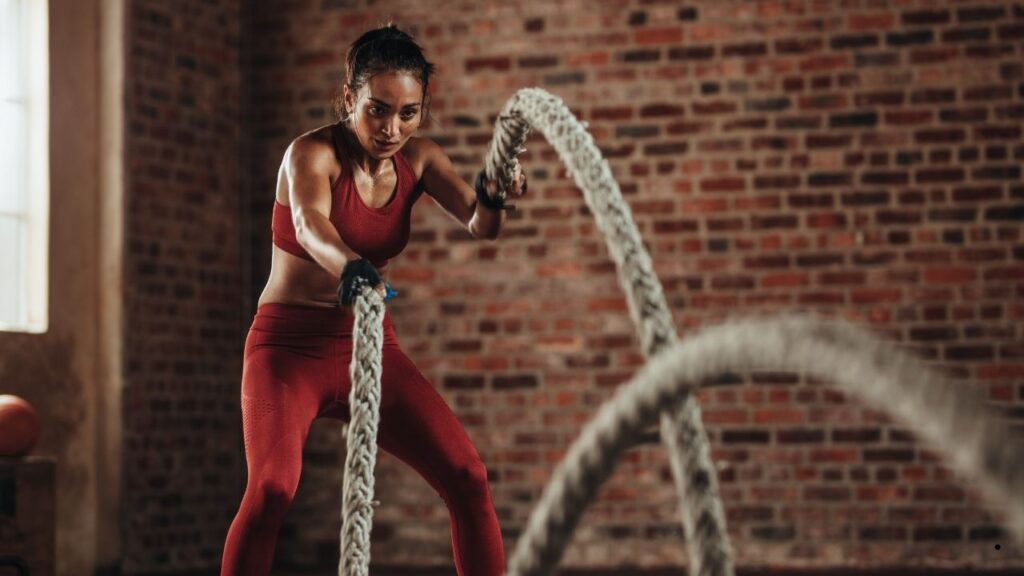5 Importance of Physical Fitness: Physical fitness is more than just a trendy term — it’s the foundation of a healthy and fulfilling life. In today’s fast-paced world where desk jobs, unhealthy eating habits, and screen addictions dominate, maintaining physical fitness has become more important than ever. But why exactly is physical fitness so crucial?
In this article, we’ll break down the top 5 importance of physical fitness, backed by science and practical insights, and explore how regular physical activity can transform not only your body but also your mind and soul.
Table of Contents
1. Physical Fitness Improves Overall Health and Reduces Risk of Diseases
One of the most direct and widely acknowledged benefits of physical fitness is its positive impact on your overall health. Regular physical activity helps in:
a. Boosting Cardiovascular Health
Exercise strengthens the heart, improves blood circulation, and helps regulate blood pressure. Activities like jogging, cycling, and swimming are known to reduce the risk of heart diseases, strokes, and hypertension.
b. Controlling Blood Sugar and Diabetes
Fitness activities help maintain insulin sensitivity, which is crucial for preventing and managing type 2 diabetes. It also aids in controlling blood sugar levels, reducing dependency on medication in many cases.
c. Strengthening Bones and Muscles
Weight-bearing exercises and resistance training improve bone density and muscle strength, lowering the risk of osteoporosis and frailty in older adults.
d. Enhancing Immune Function
A moderately active lifestyle is linked to better immunity, making the body more resistant to infections like cold, flu, and even some chronic conditions.
2. Physical Fitness Supports Mental Health and Emotional Well-being
We often think of fitness in terms of muscles and weight, but its impact on the mind is equally powerful.
a. Reduces Stress and Anxiety
When you exercise, your body releases endorphins — also known as the “feel-good hormones.” These help combat stress and promote relaxation.
b. Improves Mood
Regular workouts reduce the symptoms of depression and increase the production of serotonin and dopamine — neurotransmitters associated with happiness and pleasure.
c. Boosts Self-Esteem
Achieving fitness goals, even small ones, creates a sense of accomplishment. Over time, this improves body image and self-confidence.
d. Promotes Better Sleep
Physically active individuals tend to fall asleep faster, have deeper sleep cycles, and wake up feeling more refreshed. This is because exercise helps regulate circadian rhythms.
3. Physical Fitness Increases Energy Levels and Productivity
It might seem counterintuitive, but spending energy through physical activity actually gives you more energy in the long run.
a. Enhanced Stamina and Endurance
Regular workouts improve cardiovascular and muscular efficiency, allowing your body to perform tasks for longer without getting tired easily.
b. Better Focus and Concentration
Exercise increases blood flow to the brain, boosting cognitive functions like memory, learning, and problem-solving.
c. Boosts Work Performance
Fit individuals tend to have sharper concentration, better time-management skills, and more resilience under pressure. This directly translates into higher productivity at work or in academics.
4. Physical Fitness Helps in Weight Management and Body Composition
Maintaining a healthy weight is essential for overall wellness, and physical fitness plays a central role in this.
a. Burns Calories and Increases Metabolism
Cardio and strength training exercises help burn calories, both during the workout and afterward through elevated metabolism.
b. Reduces Visceral Fat
Regular activity helps in reducing harmful belly fat, which is associated with many chronic diseases like diabetes, cancer, and heart conditions.
c. Builds Lean Muscle Mass
Strength training and body-weight exercises promote muscle development, which in turn helps in shaping and toning the body.
d. Maintains Weight After Loss
Studies show that people who maintain physical activity after weight loss are more likely to keep the weight off in the long term.
5. Physical Fitness Enhances Longevity and Quality of Life
Staying fit not only helps you live longer but also ensures that your life is more enjoyable and independent.
a. Increases Life Expectancy
Numerous studies have shown that regular physical activity is associated with a longer lifespan, even in small amounts.
b. Improves Mobility and Flexibility
As we age, maintaining muscle strength and joint flexibility becomes essential for independence. Fitness helps reduce the risk of falls and injuries.
c. Delays Signs of Aging
Regular exercise improves skin health, posture, and mental clarity, helping you look and feel younger.
d. Promotes Active Lifestyle in Old Age
Being physically fit allows older adults to continue participating in activities they enjoy — traveling, gardening, playing with grandchildren, and more — with fewer limitations.
How to Get Started with Physical Fitness
If you’re new to fitness, don’t worry. You don’t need to become a gym rat to enjoy these benefits. Here’s a simple roadmap:
a. Start Small
Begin with 20-30 minutes of brisk walking or light yoga daily. Gradually increase intensity and duration.
b. Mix It Up
Include a combination of cardio, strength training, flexibility exercises, and balance workouts in your routine.
c. Set Realistic Goals
Don’t aim for six-pack abs in a month. Instead, aim to be consistent. Progress will follow.
d. Make It Enjoyable
Choose activities you love — dancing, cycling, playing sports, swimming — anything that keeps you moving.
e. Track Progress
Keep a journal or use fitness apps to track your workouts and celebrate small victories.
Conclusion: 5 Importance of Physical Fitness
Physical fitness isn’t just a trend — it’s a lifestyle choice that touches every area of your life. From physical health to emotional stability, from weight management to longevity, the benefits are countless.
By understanding and embracing the 5 importance of physical fitness, you take the first step toward a healthier, happier, and more vibrant life. No matter your age, gender, or current fitness level — it’s never too late to start.

